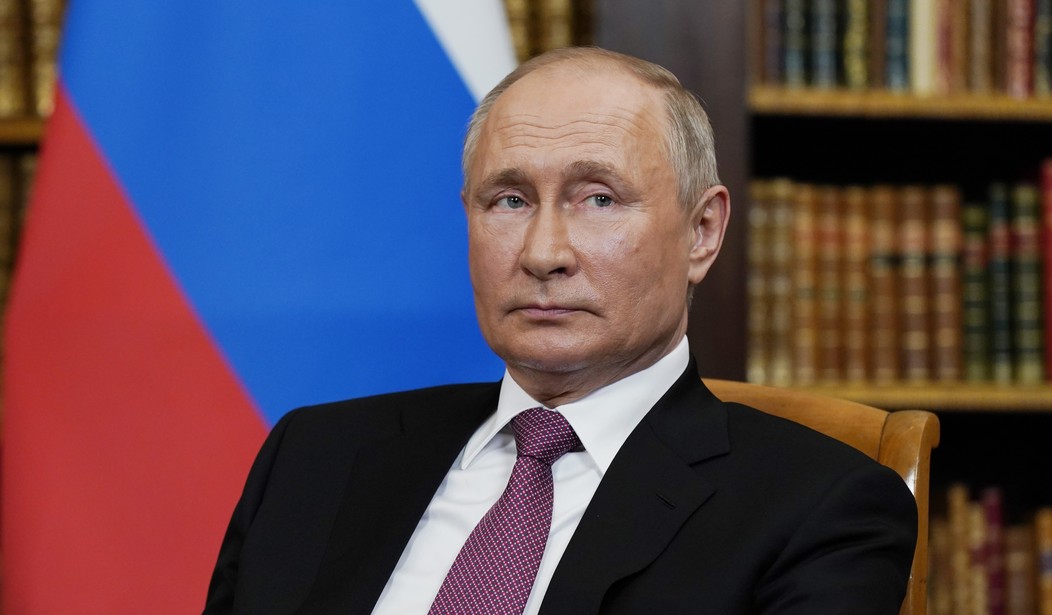While we await the results of the talks between Russian and Ukrainian envoys today, it’s looking increasingly clear that the massive economic actions being taken by most of the world against Russia are starting to have an effect. We don’t know yet if this will be enough to force Vladimir Putin to completely back down (or if it will drive him to even more unbalanced actions) but he must be starting to feel the pressure. Some of his own oligarchs are calling on him to end the invasion and even his assumed backers in China are showing signs of having cold feet. While sanctions and economic punishment for bad behavior are nothing new, I can’t recall a time when such measures have been imposed this broadly and damagingly. So it’s worth asking if this is what the new face of warfare will look like in the 21st century. Are we replacing armies with… banks?
Some early signs are emerging of significant economic consequences to Russia following its invasion of Ukraine three days ago. While official quotes for the Russian ruble were unchanged at roughly 84 rubles to the dollar, one online Russian bank, Tinkoff, was giving an unofficial exchange rate of 152 rubles over the weekend.
Videos from Russia showed long lines of Russians trying to withdraw cash from ATMs, while the Russian Central Bank issued a statement calling for calm, in an effort to avoid bank runs. Reports also showed that Visa and Mastercard were no longer being accepted for those with international bank accounts.
“Banks and credit card companies dealing with Russia are going into lock down mode given the fast pace and increasing bite of the sanctions,” said Amanda DeBusk, a partner with Dechert LLP.
The value of the ruble plunged by 30% this morning and interest rates were jacked up by 20%. It’s being reported that Putin is in an emergency meeting with his economic advisers. He’s facing what is quickly amounting to a legitimate crisis. And let’s keep in mind that all of the serious, heavyweight sanctions only started kicking in five days ago when the invasion began in earnest.
We can’t entirely rule out the possibility of Putin doing something entirely crazy if he feels that he’s been pushed too far, or at least not yet. But let’s just say that this works and Vladimir Putin is forced to retreat entirely from Ukraine with his tail between his legs. It’s hard to argue that such a scenario couldn’t be described as a “victory” for the west and a “defeat” for Russia. But those are words we typically use when talking about warfare. (Or sports or other competitive activities, of course.)
So are we watching a world war play out right now without any weapons being fired, except in Ukraine? It’s certainly starting to look that way. But even if it works in this situation, there are reasons to be concerned when the same tactics start showing up elsewhere. We’ve never seen such a massive impact in such a short period of time because it’s never been implemented in this fashion before. There have been significant sanctions against North Korea for decades now, but Kim Jong-un has never relented, mostly because there are too many countries (including Russia and China) who have been violating them and bailing his country out. Nobody is riding to the rescue for Russia at the moment.
Of course, it took a blatant act of unprovoked aggression to get enough players onboard to allow this to work to the extent that it has thus far. That leads me to wonder where this sort of unified global response was in 2014 when Putin took the Crimean Peninsula. Why did the world not band together in this fashion when North Korea first started firing off nuclear detonations and threatening to burn the world down? If we want to engage in a bit of whataboutism, why didn’t a different global economic coalition form against the United States in the early 2000s when we went into Iraq and toppled its government despite a complete lack of evidence that they had anything to do with the 9/11 attacks and the fact that they hadn’t fired a shot at us?
It’s not as if economic warfare is totally unheard of in human history. There are plenty of stories out of Europe where an army would surround a well-defended fortress, burn all of the crops in the surrounding fields, poison their water supply, and just wait for them to come out and surrender. But now it’s being done on a global scale. Most nations have become so dependent on international banking and finance systems that didn’t really exist in this pervasive nature a couple of generations ago that cutting off their access can essentially kill them.
One last thought to share before I close out this bit of random speculation with you. It’s hard to ignore the parallels between what’s currently happening to Putin’s Russia and some things we’ve been seeing back home in the United States of late. For better or worse, Putin is in the process of being “canceled” by a collective of nation-states who can control broad swaths of communications and commerce. Does that sound familiar to anyone? It’s all well and good when nearly everyone agrees on a target. But those doing the canceling today may well find themselves being canceled tomorrow. Just some food for thought.








Join the conversation as a VIP Member